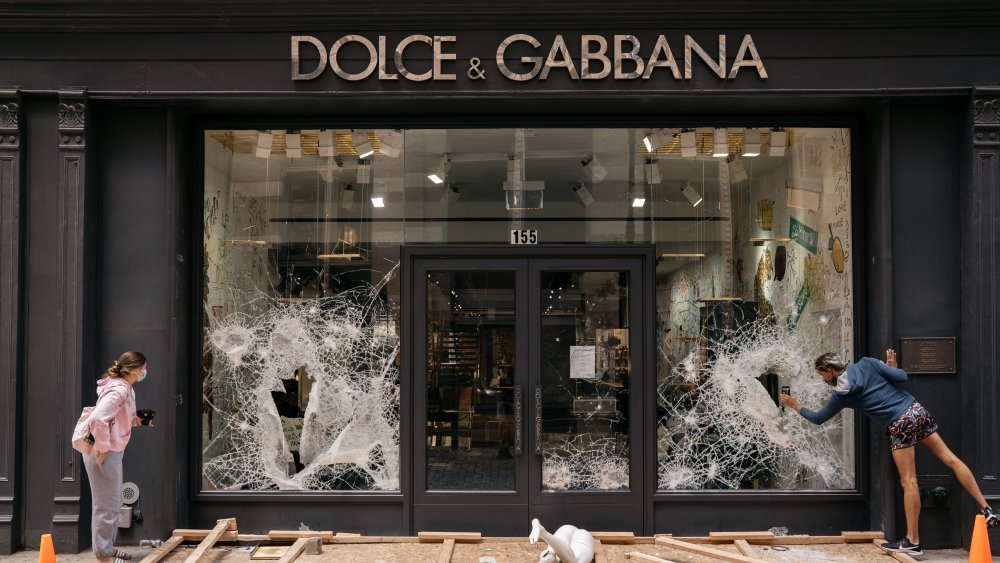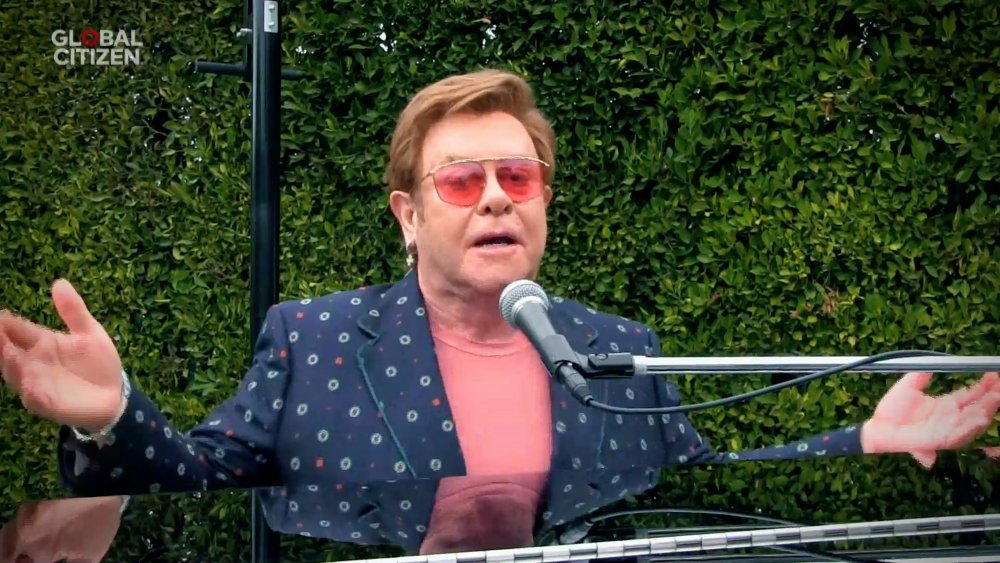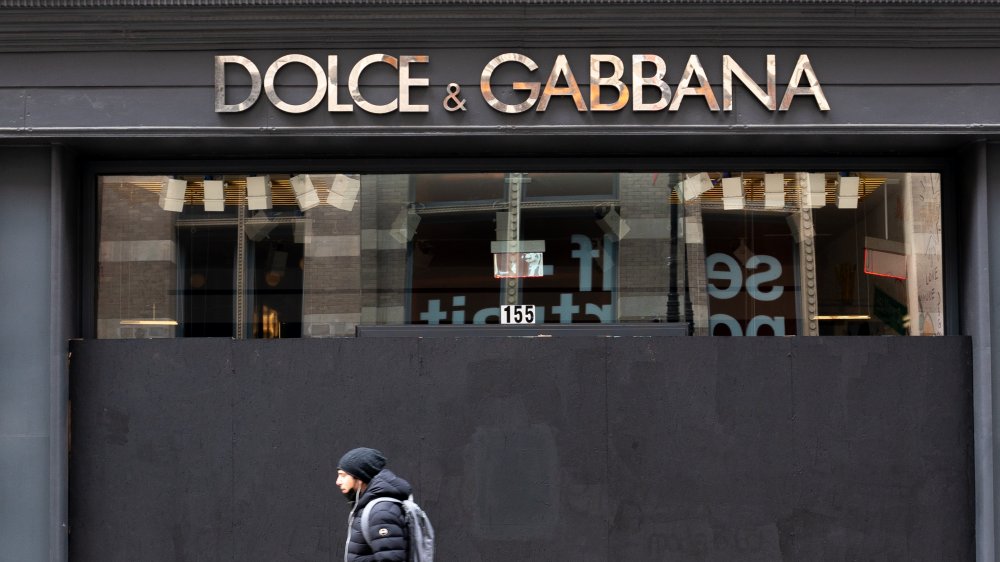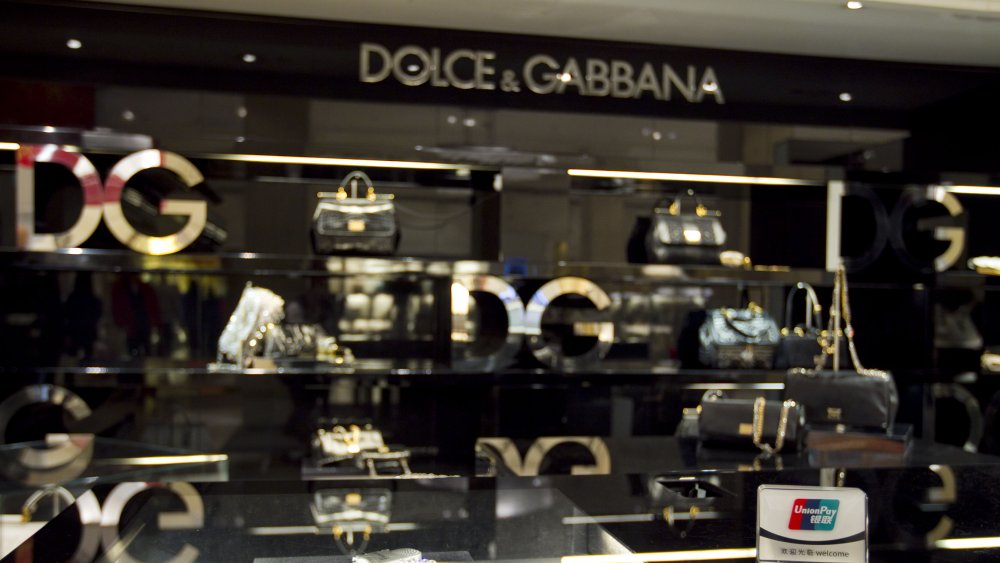The Truth About Dolce & Gabbana
Domenico Dolce and Stefano Gabbana founded the Dolce & Gabbana label and presented their first women's collection in 1985. Their first boutique opened in Tokyo in 1989, and by 1990 the label had grown to include a menswear collection, a lingerie collection, and a beachwear line (via globalblue.com). The designer brand was seen on runways and red carpets and was mentioned in fashion-focused shows like Sex and the City. It became synonymous with Italian high fashion and sought after by many as a status symbol.
Yet, over the last few years, scandal after scandal have caused boycotts encouraged by different celebrities and groups, and have left a sour taste in the mouths of many previous Dolce & Gabbana fans. In fact, the repercussions have been so severe for the company that The New York Times published a piece in 2018 called "The Crash and Burn of Dolce & Gabbana."
The designers made insensitive comments about IVF and gay adoption
In 2015, Dolce & Gabbana's winter womenswear collection paid tribute to motherhood, and its unveiling fashion show featured mothers walking with their own children (via Vogue). Unfortunately, however, it was also around this same time that the designers made some truly insensitive and upsetting remarks about in vitro fertilization (IVF). They called children born via this process "synthetic," and said that IVF pregnancies are "chemical offsprings and rented uterus." If that weren't bad enough, they also added that they "oppose gay adoption" (via Hollywood Reporter). Yikes.
Unsurprisingly, a severe backlash ensued against the brand, and major celebrities like Elton John and Ryan Murphy called for a boycott. Further, one of the company's executives announced that he was stepping down from his position as the editorial director of Dolce & Gabbana's magazine, Swide. In a Facebook post, he stated the designers' comments were "in total conflict with my personal beliefs and with my commitments towards civil rights in my country."
The backlash was so swift and significant, the designers were forced to apologize to save face. Dolce told Vogue at the time, "I am so sorry. It was not my intention to offend anyone... I've done some soul-searching. I've talked to Stefano a lot about this. I've realized that my words were inappropriate, and I apologize." And Gabbana, who is himself homosexual, clarified his stance on LGBTQ adoption, telling Vogue he himself wants to adopt a child.
Dolce & Gabbana accused of racism after ofensive advertizing
In 2018, in advance of a planned fashion show in Shanghai, D&G released a series of video clips that were widely panned as racist for featuring offensive stereotypes. In one, for instance, a Chinese model was taught to eat spaghetti, pizza, and a cannoli with chopsticks. Around this same time, Stefano Gabbana himself got into a heated argument with a critic on Instagram and let loose a tirade of insults that included more racist themes. Gabbana claimed his account was hacked and he had nothing to do with the offensive language, but the timing was too damning for the public to brush it off (The New York Times).
Shortly after the clips were released, Shanghai-based writer and director Xiang Kai burned more than $20,000 worth of Dolce & Gabbana products and threw his D&G watches and shoes into the trash. Previously a fan of the brand, he told NYT, "The purpose of burning my clothes is to awaken the Chinese people and the Chinese nation. Some people say you've wasted a lot of money. I'm willing to waste this money for the nation's dignity."
Within only four days of the scandal, the brand was forced to cancel its fashion show, was publicly slammed by Chinese models and celebrities, was abandoned by European influencers, and disappeared from the site of Chinese online retail giant Alibaba's TMall as well as jd.com, secoo.com, and department store Lane Crawford.
The brand has not recovered popularity in China
While Dolce & Gabbana has recovered enough of its popularity in the U.S. and Europe since its disastrous PR debacles to be considered "resurrected," it has not been able to regain its footing in China (via Gartner.com). Gartner L2's Digital IQ Index: Luxury China 2019 study found that in the first quarter of 2019, social media engagement was down 98% from the same quarter last year. In 2018, the brand had virtually ruled social media engagement in the country, being promoted and mentioned by prominent Chinese celebrities including the boy band TFBoys and actress Dilraba Dilmurat.
So while the brand has made its way back to the Oscars red carpet and onto Kim Kardashian's Instagram, it has not been able to recover from the damage it did in China, where a full third of its sales once came from.



